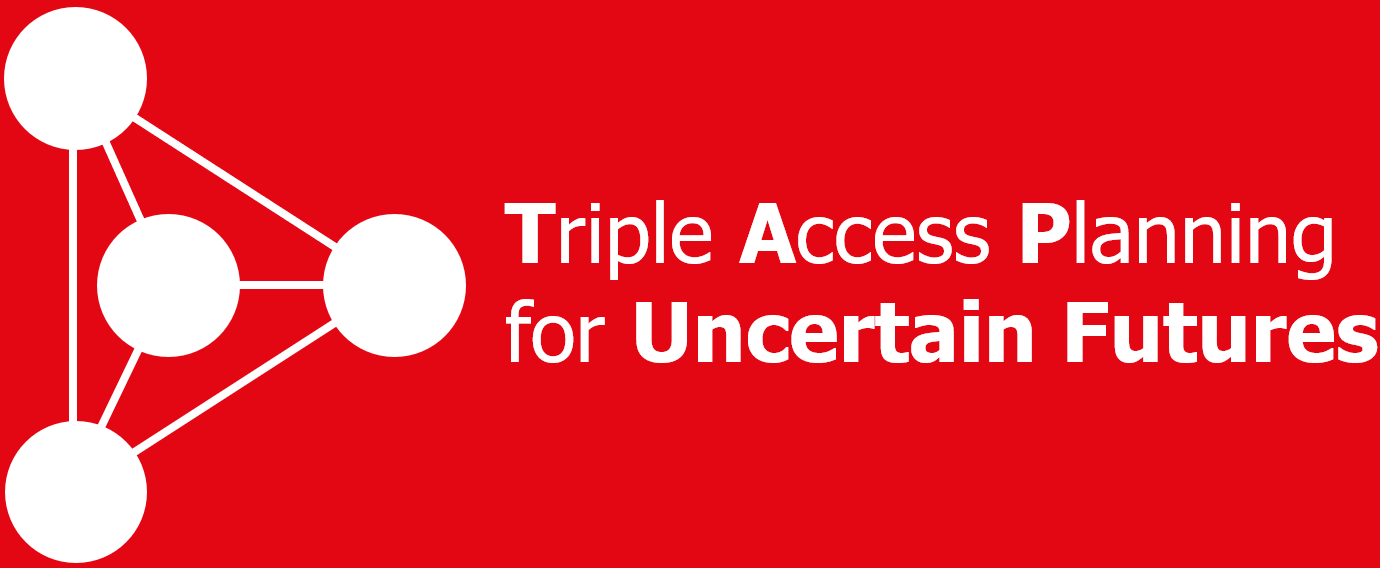The way in which citizens move around cities and regions across the globe has been changing in ways that were not anticipated and has left public authorities unsure how to plan transport infrastructure and services. I chaired a working group of the International Transport Forum which looked at why we had not foreseen counter trends in travel behaviour, what we can do to better anticipate future travel demand and how we can plan transport given deep uncertainty. The findings of the working group highlight the importance of the work we are now conducting in the Triple Access Planning for Uncertain Futures project.
The International Transport Forum (ITF) is an intergovernmental organisation with 63 member countries that acts as a think tank for transport policy and organises an Annual Summit of transport ministers. One of its activities is to convene working groups of international experts to conduct in-depth studies of transport policy issues identified as priorities by ITF member countries.
In 2019, I was asked by the ITF to chair a working group on ‘Travel Transitions and New Mobility Behaviours’. I had previously led a study for the UK Department for Transport exploring the reasons for a decline in car driving by young people. As I was writing a discussion paper for the working group, everyone’s lives changed dramatically when the world was struck down by Covid-19. The subject of the working group took on increased significance as we experienced the biggest shift in travel behaviour in living memory.
The pandemic affected how the working group operated. Instead of meeting in Paris, the working group met via zoom on two days in December 2020. A sign of things to come? We were taking advantage of improved digital interaction technologies to save on international travel and still conduct productive business. Representatives of 16 countries attended the meeting and discussed the challenges they were facing and the responses they were making to uncertainty in travel trends.

After the online meeting, I worked with the ITF secretariat and invited experts to write a research report. The working group published its research report “Travel Transitions: How Transport Planners and Policy Makers Can Respond to Shifting Mobility Trends” in August 2021. The report discusses why breaks with past mobility trends occurred but were not foreseen and makes recommendations on how to plan for a future where very little is certain any more. The report was introduced on 20 September via a webinar to a global audience and I would encourage you to have a look and listen to a recording of the event.

As well as my role in overseeing the writing of the report and writing a chapter on ‘Trend breaks and travel transitions’, I was joined by two Triple Access Planning for Uncertain Futures project colleagues in contributing to the report. Glenn Lyons (UWE Bristol) wrote a chapter on ‘Handling uncertainty in assessing travel transitions’ and Karolina Isaksson (National Road and Transport Research Institute, Sweden) co-wrote a chapter on ‘Governance challenges and opportunities’.
The report highlights how travel behaviour has evolved in unexpected ways in urbanised areas in the early 21st century. It examines how significant breaks with past trends happened and why these shifts were not foreseen. It is explained how forecast-led transport planning is not well equipped to handle deep uncertainty. The report introduces approaches which explicitly address uncertainty, are vision-led and enable the development of resilient plans. It also considers how governance and institutions can be adapted to support such a paradigm shift.
The ITF report not only emphasises the importance of getting to grips with uncertainty but also the need to move away from focusing only on mobility and recognising that the main purpose of transport – to enable access to opportunities – can also be achieved by spatial proximity and digital connectivity. I’m pleased to say that this is in harmony with the underlying principles of the Triple Access Planning for Uncertain Futures project. Glenn Lyons has introduced the Triple Access System in a previous blog on this site and how Triple Access Planning has the Triple Access System in mind. I look forward to working with the rest of the project team over the next three years to respond to the challenges highlighted in the ITF report and to develop new ways of planning for urban mobility.
Kiron Chatterjee is Associate Professor in Travel Behaviour at UWE Bristol, and a member of the Triple Access Planning for Uncertain Futures project team.
